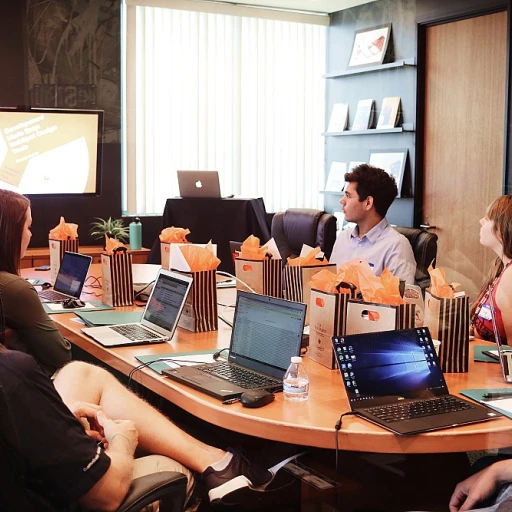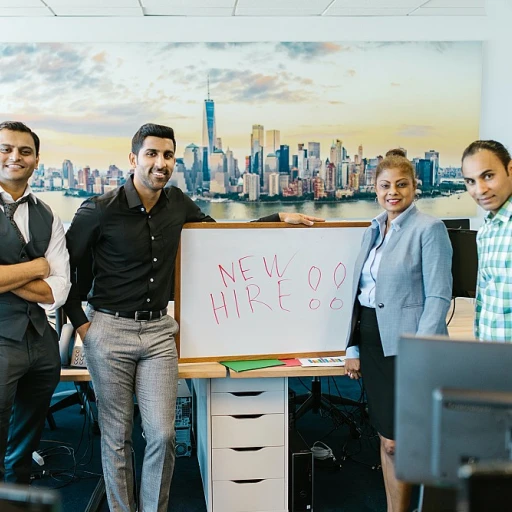
The Basics of Ocean Imports
Overview of the Ocean Import Process
The world of ocean imports is a complex one, involving numerous steps and participants to ensure that goods make their way from one part of the globe to another. Understanding the basic process is essential for any professional involved in this field, from freight forwarders to customs brokers.
The journey of an ocean import begins with the selection of a freight forwarder. This crucial decision sets the course for the entire operation. The forwarder will manage numerous details, including the preparation of the bill of lading, arranging for cargo transport, and securing any necessary service customs. Once your cargo is on the water, the import process becomes a waiting game, but it’s also a time for preparations.
Customs clearance is a vital step that requires coordination between brokers, forwarders, and other logistics experts. The right documents must be in place to satisfy all regulatory requirements and avoid costly delays. It's in this phase that experienced customs officials come into play, ensuring there are no hitches in the clearance process. As the customs charges are calculated and paid, it is crucial to have experts on hand who know the ins and outs of these financial aspects.
The ISF, or Importer Security Filing, must be submitted timely to prevent penalties. The process demands attention to detail and a deep understanding of customs regulations. Once clearance is secured, the final delivery phase can begin, guiding the cargo from port to its final destination where clients eagerly await their goods.
Understanding these elements can help you navigate the hiring landscape by focusing on the required skills and expertise. For more insights on hiring strategies, consider exploring job application strategies.
Skills Required for Ocean Imports Roles
Key Skills for Ocean Imports Roles
When diving into the realm of ocean imports, there are pivotal skills that those in the field must possess. Firstly, comprehensive knowledge of the import process is fundamental. This entails understanding the journey of cargo from pick-up to the final delivery, including proficiency in handling a bill of lading and ensuring smooth customs clearance.
Working in ocean imports also requires the ability to communicate effectively with a diverse range of clients including customs brokers, freight forwarders, and shippers. Skilled ocean import professionals will adeptly coordinate with freight forwarders to manage the logistics of ocean freight, ensuring timely delivery of goods.
Being detail-oriented is crucial when dealing with experienced customs requirements and regulations, including the ISF (Importer Security Filing) and navigating customs clearance processes. The ability to handle documentation with precision will significantly impact the speed and efficiency of clearance.
Time management is another critical skill, as professionals in this role often work under tight timelines to facilitate cargo clearance within specified hours. An understanding of Canadian and international import regulations can also provide a competitive edge.
Additionally, having a good grasp of the financial aspects such as managing charges related to imports and knowing what fees need to be paid will, contributes to effective operations. Professionals in these roles must be able to provide clients with a high level of service, ensuring that they are kept informed throughout the import process.
These skills combined foster expertise in importing ocean cargo, enabling professionals to overcome challenges that may arise. The demand for these skills is ever-increasing as ocean imports continue to grow, pointing to a promising need for skilled individuals in the sector. For those exploring career opportunities, understanding and acquiring these skills can provide a fair chance at excelling in the ocean imports industry.
Challenges in Hiring for Ocean Imports
Complex Landscape of Customs and Clearance
Navigating the complexities of hiring for ocean imports requires an understanding of several challenges unique to the industry. At the forefront is the intricate customs process. Customs clearance is a critical step in the import process, where a significant amount of time and expertise is required to ensure compliance with regulations. This demands an experienced customs broker who can manage both the freight and documentation efficiently.Time Sensitivity and Delays
Hiring for ocean import roles also involves managing time-sensitive logistics. Clients expect timely delivery of their goods, and any delays in customs clearance can impact the entire supply chain. The forwarder will need to coordinate with customs and other stakeholders to ensure the cargo, bill of lading, and import process proceed smoothly. This includes addressing any unexpected delays or charges that may arise during the clearance process.Variance in Procedures Across Regions
Another challenge is the variance in customs procedures across different regions. For instance, Canadian imports may have different regulations compared to imports bound for other countries. Candidates thus need to be well-versed in region-specific customs guidelines and be able to adapt to various regulatory landscapes. This requires constant learning and staying updated with the ever-evolving compliance standards.Communication and Relationship Management Skills
Effective communication and relationship management are crucial skills for anyone involved in ocean imports. The process often involves coordination between freight forwarders, customs brokers, and clients to ensure that expectations are met and issues are resolved promptly. This means candidates need to possess strong interpersonal skills to manage these relationships proactively throughout the duration of the import process.Handling Financial Aspects
Financial acumen is another important asset for roles in ocean imports. Understanding the financial implications, such as freight charges, service fees, and customs duties, helps in managing costs effectively. An experienced candidate will know how to negotiate contracts, track what charges are being paid, and ensure that all aspects of the import process are cost-efficient. Grappling with these challenges requires meticulous coordination and a robust hiring strategy to appoint skilled individuals who can navigate the complexities of the ocean import process efficiently. For insights into maintaining an equitable hiring process amidst such challenges, explore our article on understanding quid pro quo harassment in the hiring process here to ensure your policies also protect against potential issues internally during hiring.Evaluating Ocean Imports Experience in Candidates
Assessing Expertise in the Ocean Imports Process
Evaluating a candidate's experience in ocean imports requires a firm grasp of various aspects throughout the import process. Candidates need to have knowledge about not only the customary practices of imports but also the intricacies involved in handling different types of cargo. Customs clearance is pivotal in ocean imports, and experienced customs brokers play a crucial role in ensuring that all legal requirements are met. Candidates with comprehensive understanding of customs measures and clearance procedures are more likely to adeptly manage the documents and compliance aspects, such as the Importer Security Filing (ISF) which is vital for importing ocean shipments into places like Canada, ensuring all charges and duties are accurately calculated and paid. Knowledge of the role of a freight forwarder is also important as these professionals facilitate the smooth transit and delivery of cargo from one point to another. Understanding how forwarders manage the various stages— from booking the shipping space to handling the bill of lading — demonstrates a candidate's proficiency in coordinating and optimizing the overall import process. Assessing candidates on their ability to manage clients and offer exceptional service customs is also critical. Skills such as communication and negotiation improve client relations and facilitate the resolution of any issues that arise during transit, thereby ensuring the final delivery happens efficiently and on time. Overall, identifying someone who has mastered managing time-sensitive shipments, handling unexpected customs clearance issues, and optimizing operational efficiencies will significantly enhance your import operations. Meticulous evaluation tailored to these competencies not only helps in selecting the right talent but also in setting up a well-integrated ocean imports process that meets client needs efficiently.Training and Development in Ocean Imports
Enhancing Skills through Training and Development
The ocean imports industry demands a diverse set of skills, with a focus on efficient customs clearance, client management, and a thorough understanding of the import process. To keep up with the evolving needs of global markets, continuous training and development play a crucial role in shaping proficient ocean import professionals. Training programs should emphasize several key areas:- Understanding the Import Process: Mastery of the import process, including the key documents such as the bill of lading and ISF filing, is fundamental. Professionals need to understand service customs protocols and experienced customs brokerage methods to navigate complex international trade regulations effectively.
- Customs and Compliance: Customs brokers and professionals engaged in ocean imports will benefit from comprehensive training on current compliance standards, embracing both Canadian and broader international regulatory frameworks. Service customs training should ensure professionals can facilitate expedited customs clearance and reduce charges.
- Client Interaction and Service: Client satisfaction hinges on the ability to deliver exceptional service. Ocean import professionals must hone their communication skills to provide clear information about freight charges, forwarding steps, and the final delivery timetable. Effective client interaction is vital in maintaining trust and ensuring repeat business.
- Technology and Tools: As the industry integrates advanced technological solutions, familiarity with digital tools used for real-time tracking, data analysis, and process optimization will become increasingly important. This knowledge equips professionals to manage freight forwarding efficiently and support clients better.
- Time Management: Given that ocean imports can involve extended transit periods, understanding how to optimize transit time and manage hours spent on customs clearance is critical. Training should include strategies to enhance productivity and minimize delays.
Future Trends in Ocean Imports Hiring
Embracing Digitalization in Hiring Practices
As the ocean import sector continues to evolve, embracing digital solutions becomes vital. Streamlining the import process with cutting-edge technologies can significantly improve the efficiency and accuracy of ocean imports. For instance, tools that automate the preparation of crucial documents such as the bill of lading and ISF filing help ensure compliance and reduce processing time. Utilizing such tools can ultimately enhance the interaction with clients and forwarders while promoting higher levels of service customs.
Boosting Collaboration with Technologies
The integration of collaborative technologies in hiring processes will allow companies to efficiently assess candidates for ocean import roles. Systems that facilitate communication between departments and streamline the sharing of candidate information are crucial. Not only does this enhance the coordination among customs brokers, freight forwarders, and hiring teams, but it also helps maintain a strong focus on candidate experience by keeping communication channels open and transparent.
Adapting to Changing Import Regulations
Keeping up with the changing global trade landscape means that companies need to pay close attention to the evolving import regulations, such as those in Canadian and other international markets. Professionals in the field will have to stay informed about the latest amendments in customs clearance procedures and duty rates, ensuring that imported cargo complies with all relevant regulations before the final delivery.
The Rise of Flexible Work Practices
The future of hiring for ocean imports will also see a shift towards more flexible work practices, particularly for those involved in the logistical and administrative aspects. With the advent of work-from-home paradigms, the shift in work culture is set to continue. Organizations are now offering more flexible hours and remote work options, which is helping them attract a broader pool of skilled candidates who seek work-life balance in the fast-paced atmosphere of shipping and logistics.













